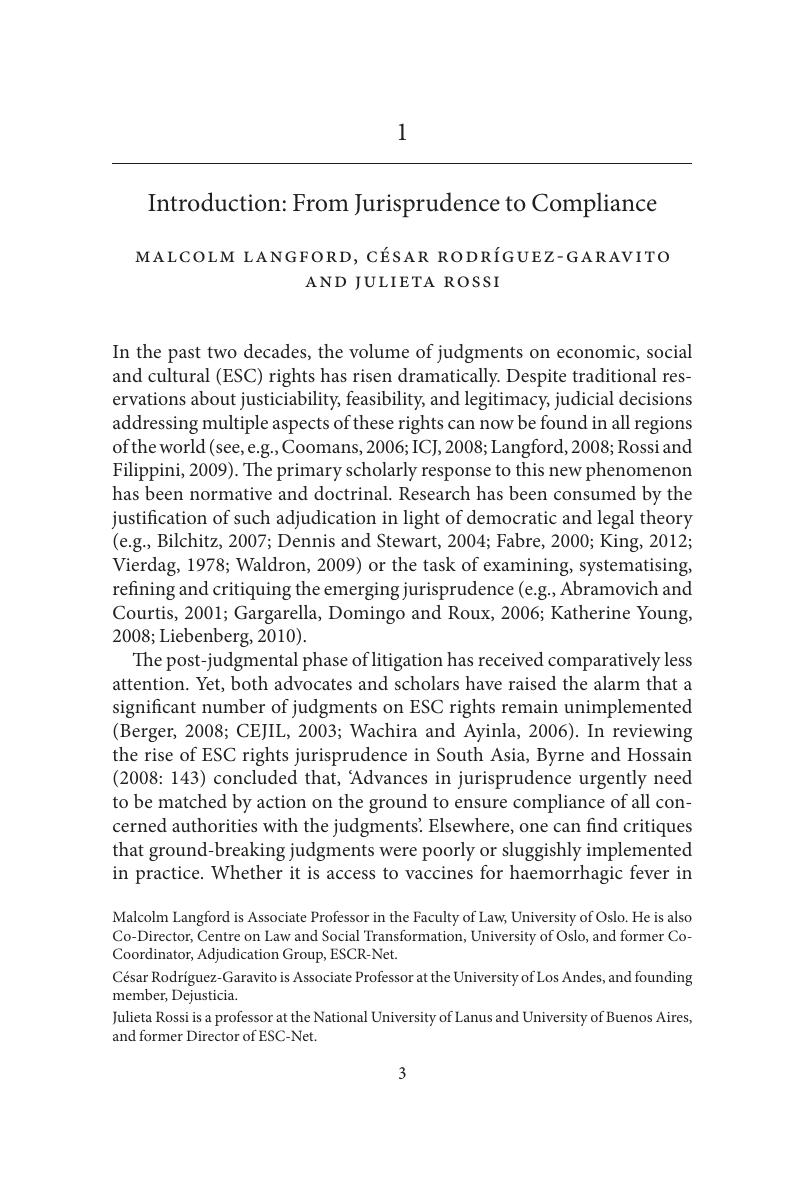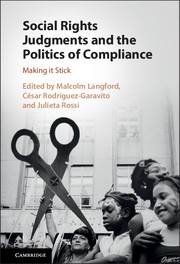Book contents
- Social Rights Judgments and the Politics of Compliance
- Social Rights Judgments and the Politics of Compliance
- Copyright page
- Contents
- Figures and Tables
- Contributors
- Preface
- Part I Overview
- 1 Introduction: From Jurisprudence to Compliance
- 2 Explaining Compliance: Lessons Learnt from Civil and Political Rights
- 3 Beyond Enforcement: Assessing and Enhancing Judicial Impact
- Part II Case Studies
- Part III Concluding Perspectives
- Case Index
- Thematic Index
- References
1 - Introduction: From Jurisprudence to Compliance
from Part I - Overview
Published online by Cambridge University Press: 16 March 2017
- Social Rights Judgments and the Politics of Compliance
- Social Rights Judgments and the Politics of Compliance
- Copyright page
- Contents
- Figures and Tables
- Contributors
- Preface
- Part I Overview
- 1 Introduction: From Jurisprudence to Compliance
- 2 Explaining Compliance: Lessons Learnt from Civil and Political Rights
- 3 Beyond Enforcement: Assessing and Enhancing Judicial Impact
- Part II Case Studies
- Part III Concluding Perspectives
- Case Index
- Thematic Index
- References
Summary

- Type
- Chapter
- Information
- Social Rights Judgments and the Politics of ComplianceMaking it Stick, pp. 3 - 42Publisher: Cambridge University PressPrint publication year: 2017
References
- 4
- Cited by



